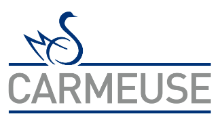Production Manager
About This Job
Position Description: Essential Functions:Utilize JobBoss ERP system to create Job Travelers based on sales order demand and reorder points.
Create, maintain, pick, and close completed job travelers.
Maintain Sales Order Spreadsheet and plant job status spreadsheets with Job Traveler number, status, labor hours, sales dollars and needed purchased parts.
Plan and establish work schedules, assignments, and production sequences to meet production goals.
Update the production board daily with new sales orders and shipments.
Forecast required labor hours versus available labor hours and make recommendations on overtime or staffing requirements.
Maintain and communicate production schedule.
Manage production schedule when changes occur, due to design changes, labor or material shortages, backlogs, or other interruptions, by collaborating with management, marketing, sales, production, or engineering.
Specific Duties:Facilitate weekly production meetings, providing any information pertinent to sales order scheduling or purchasing.
Facilitate production meetings, providing direction to production based on sales order due dates, labor and material planning.
Attending Project meetings, providing any pertinent information.
Suggest and implement improvements pertinent to job assignment and responsibilities.
Work with other team members as requested to make process improvements throughout the organization.
Ownership and accountability for housekeeping in work area.
Cross-train with Material Handler and Shipping/Receiving positions and provide support as needed during absences, vacations or high work volume. Essential Functions of Role:
Getting Information Observing, receiving, and otherwise obtaining information from all relevant sources.
Making Decisions and Solving Problems Analyzing information and evaluating results to choose the best solution and solve problems.
Working with Computers Using computers and computer systems (including hardware and software) to program, write software, set up functions, enter data, or process information.
Communicating with Supervisors, Peers, or Subordinates Providing information to supervisors, co-workers, and subordinates by telephone, in written form, e-mail, or in person.
Monitoring Processes, Materials, or Surroundings Monitoring and reviewing information from materials, events, or the environment, to detect or assess problems.
Inspecting Equipment, Structures, or Materials Inspecting equipment, structures, or materials to identify the cause of errors or other problems or defects.
Identifying Objects, Actions, and Events Identifying information by categorizing, estimating, recognizing differences or similarities, and detecting changes in circumstances or events.
Establishing and Maintaining Interpersonal Relationships Developing constructive and cooperative working relationships with others, and maintaining them over time.
Organizing, Planning, and Prioritizing Work Developing specific goals and plans to prioritize, organize, and accomplish your work.
Coaching and Developing Others Identifying the developmental needs of others and coaching, mentoring, or otherwise helping others to improve their knowledge or skills.
Coordinating the Work and Activities of Others Getting members of a group to work together to accomplish tasks.
Developing and Building Teams Encouraging and building mutual trust, respect, and cooperation among team members.
Processing Information Compiling, coding, categorizing, calculating, tabulating, auditing, or verifying information or data.
Documenting/Recording Information Entering, transcribing, recording, storing, or maintaining information in written or electronic/magnetic form.
Guiding, Directing, and Motivating Subordinates Providing guidance and direction to subordinates, including setting performance standards and monitoring performance.
Evaluating Information to Determine Compliance with Standards Using relevant information and individual judgment to determine whether events or processes comply with laws, regulations, or standards.
Resolving Conflicts and Negotiating with Others Handling complaints, settling disputes, and resolving grievances and conflicts, or otherwise negotiating with others.
Thinking Creatively Developing, designing, or creating new applications, ideas, relationships, systems, or products, including artistic contributions.
Analyzing Data or Information Identifying the underlying principles, reasons, or facts of information by breaking down information or data into separate parts.
Training and Teaching Others Identifying the educational needs of others, developing formal educational or training programs or classes, and teaching or instructing others.
Monitoring and Controlling Resources Monitoring and controlling resources and overseeing the spending of money.
Interpreting the Meaning of Information for Others Translating or explaining what information means and how it can be used.
Handling and Moving Objects Using hands and arms in handling, installing, positioning, and moving materials, and manipulating things.
Performing Administrative Activities Performing day-to-day administrative tasks such as maintaining information files and processing paperwork.
Providing Consultation and Advice to Others Providing guidance and expert advice to management or other groups on technical, systems-, or process-related topics.
Performing General Physical Activities Performing general physical activities includes doing activities that require considerable use of your arms and legs and moving your whole body, such as climbing, lifting, balancing, walking, stooping, and handling materials.
Mathematical Reasoning The ability to choose the right mathematical methods or formulas to solve a problem.
Selective Attention The ability to concentrate on a task over a period of time without being distracted.
Similar Jobs

Director of Production

Production Manager

Production Manager

Production Manager

Production Manager

Production Manager
Production Manager
Production Manager
Production Manager

Production Manager

Production Manager

Production Manager

Production Manager

Production Manager

Production Manager

Production Manager

Production Manager

Production Manager

Production Manager

Production Manager
Trending Jobs
Nuclear Technical Intern - Mid Atlantic
Apprentice Lineman

Deckhand (Houston)

Electrical Engineer
Director, Financial Planning & Analysis - Energy (Enterprise)
Solar Electrician

Quality Engineer

Sr. Polymer Scientist
Gas Foreman
Apprentice Lineman I

Finishing Helper Entry Level- Dayshift

contract landman
Service Manager
Apprentice Line Worker I
Meter Technician
Service Manager

Apprentice Power Lineman
Senior Investigator

Assembler/Production
